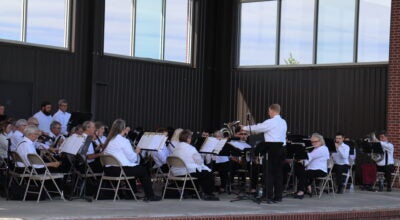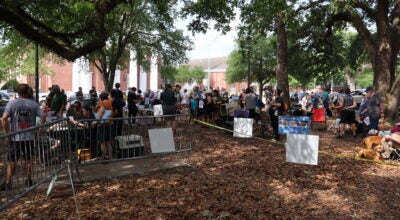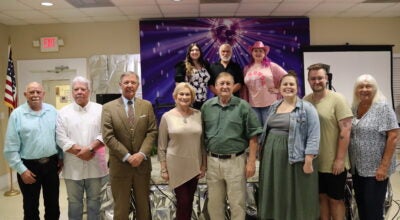Clients share needs with MSU agents, specialists
Published 1:34 pm Sunday, March 6, 2022
By Susan Collins-Smith
MSU Extension Service
RAYMOND, Miss. —Central Mississippi agricultural producers and industry professionals met with Mississippi State University personnel to discuss research and education priorities at the 2022 Producer Advisory Council meeting on Feb. 23 in Raymond.
The annual event is aimed at helping clients improve their productivity. Attendees gathered in small commodity groups to share their ideas with agents, researchers and specialists with the MSU Extension Service and the Mississippi Agricultural and Forestry Experiment Station.
The meeting was a collaborative effort with longtime partners Alcorn State University and Hinds Community College.
“Your opinions and input are vital to driving our programs,” said Sherry Surrette, head of the Central Mississippi Research and Extension Center. “Research and service are what our university does as a land-grant institution, and we depend on you to help us determine our focus each year.”
Budget cuts in recent years have hindered some requests, but Extension’s mission remains to educate the public with research-backed information.
“Making us aware of what you need in your businesses and operations is so important,” said Gary Jackson, director of the MSU Extension Service. “I know many of your needs are repeated each year. I want you to know that we do hear you, and we value what you say. But funding is why we have not been able to meet many of these needs. Let your legislators know that they need to help fund our work so that we are able to provide what you need.”
Keith Coble and Scott Willard were among the new administrators introduced at the meeting. Coble became vice president for the Division of Agriculture, Forestry and Veterinary Medicine in 2021. Scott Willard became the director of the Mississippi Agricultural and Forestry Experiment Station in January.
“Our relationship with the people of the state is second to none, and we appreciate what you have to tell us,” Coble said. “We want to give you the things you need from us. This is going to be an exciting time in the next few years in terms of our work. We also appreciate our landgrant partners. It is a great time for us to work together.”
Willard said he is excited to assume his new role with the Experiment Station.
“There are things we need to address, and we are working on the best path to fill those needs,” he said. “That involves working with our legislators for funding. I’m excited to be here with you to listen to your input.”
Five commodities were represented during breakout sessions at the central region meeting: bees; agricultural crops; forestry and wildlife; beef, forages, equine and small ruminants; and vegetables, fruits and nuts.
Beekeepers requested existing Extension publications be updated and new ones created with more comprehensive information on different phases of beekeeping. They requested Extension help facilitate communication between beekeepers and the Mississippi Department of Agriculture and Commerce to help that agency maintain an accurate list of beekeepers and other information.
They encouraged Extension agents to become knowledgeable about local beekeepers and beekeeping issues. The group discussed a new Extension honeybee blog with honeybee specialist Jeff Harris.
The agricultural crops group asked for more information on crop commodity marketing. They also discussed current input costs versus commodity prices, variety selections for best performance and investment return, and the use of cover crops.
Forestry and wildlife representatives said they want more programming related to managing post-disturbance issues related to invasive species encroachment. They also asked that vacant forestry and wildlife faculty and professional positions be filled.
MSU personnel shared that they are continuing to develop carbon sequestration educational programming for professionals and landowners. They also support a partnership between the Forest Products Lab and the MSU Department of Architecture to hire an Extension specialist for forest products, which would be helpful for timber owners interested in mass timber products.
Members of the beef, forage, equine and small ruminant group are interested in compiling a list of vendors for marketing their products.
They expressed a need for regulatory standards for meat goat processing. They also discussed nutrition for beef and goats.
Representatives with the fruits, vegetables and nuts group asked for a state Extension vegetable specialist and applied vegetable researcher. They requested Extension resources on wildlife management and year-round vegetable production or alternative crops for supplemental income.
They would also like guidance on food safety training for small producers who are not required to comply with the Food and Drug Administration’s Food Safety Modernization Act.





